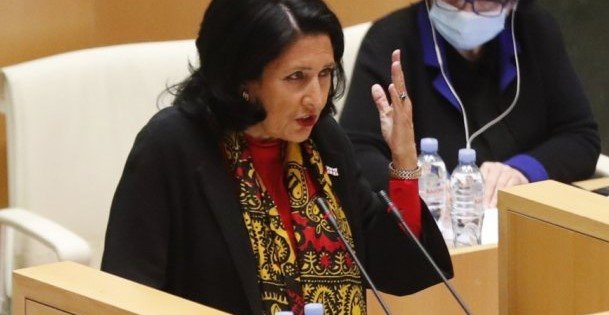In a significant move, the United States has imposed sanctions on several Georgian officials and extremists for serious human rights abuses and anti-democratic actions. The sanctions target Zviad “Khareba” Kharazishvili, Mileri Lagazauri, Konstantine Morgoshia, and Zurab Makharadze. These individuals have been implicated in violent crackdowns on peaceful protests and other actions that undermine democracy in Georgia. The sanctions include asset freezes and visa bans, reflecting the US’s commitment to holding accountable those who violate human rights and democratic principles.
Key Figures Sanctioned
The US Department of the Treasury has sanctioned Zviad “Khareba” Kharazishvili, the Chief of the Ministry of Internal Affairs Special Task Department, and his Deputy, Mileri Lagazauri. These officials were involved in the violent suppression of peaceful protests against the controversial “foreign influence law” passed in May 2024. The law requires NGOs and media outlets receiving more than 20% of their funding from foreign sources to register as foreign agents, a move widely criticized for stifling freedom of expression.
Kharazishvili and Lagazauri oversaw brutal crackdowns on protesters, including beatings and arrests of political opponents, journalists, and activists. Their actions have drawn international condemnation and highlight the ongoing struggle for democratic freedoms in Georgia. The sanctions aim to send a clear message that such abuses will not be tolerated and that those responsible will face consequences.

In addition to government officials, the sanctions also target Konstantine Morgoshia and Zurab Makharadze, leaders of the extremist group Alt-info. This group has been linked to violent attacks on individuals exercising their right to peaceful assembly. Morgoshia and Makharadze have been accused of orchestrating and participating in these attacks, further contributing to the climate of fear and repression in Georgia.
Impact of the Sanctions
The sanctions imposed by the US are expected to have significant repercussions for the individuals involved and the broader political landscape in Georgia. Asset freezes will prevent these individuals from accessing any assets held in the US, while visa bans will restrict their ability to travel to the country. These measures are intended to isolate the sanctioned individuals and limit their influence both domestically and internationally.
The sanctions also serve as a warning to other officials and extremists in Georgia who may be involved in similar activities. By targeting high-profile figures, the US hopes to deter further human rights abuses and encourage a shift towards more democratic and transparent governance. The international community’s support for these sanctions underscores the importance of upholding human rights and democratic principles in Georgia.
While the immediate impact of the sanctions will be felt by the individuals directly targeted, the broader implications for Georgia’s political environment are significant. The sanctions highlight the ongoing challenges facing the country in its efforts to strengthen democratic institutions and protect human rights. They also emphasize the need for continued vigilance and international cooperation in addressing these issues.
Future Prospects and International Response
The US sanctions are part of a broader strategy to promote accountability and support democratic reforms in Georgia. The international community has expressed strong support for these measures, with several countries and organizations condemning the actions of the sanctioned individuals and calling for greater protection of human rights in Georgia. This collective response underscores the global commitment to upholding democratic values and holding violators accountable.
Looking ahead, the sanctions are likely to influence the political dynamics in Georgia, potentially leading to increased pressure on the government to implement reforms and address human rights concerns. The US and its allies will continue to monitor the situation closely and may consider additional measures if necessary. The goal is to support the Georgian people in their pursuit of a more democratic and just society.
The sanctions also highlight the importance of international cooperation in addressing human rights abuses and promoting democratic governance. By working together, countries can more effectively hold violators accountable and support positive change. The US’s actions in this case demonstrate its commitment to these principles and its willingness to take decisive action in support of human rights and democracy.
